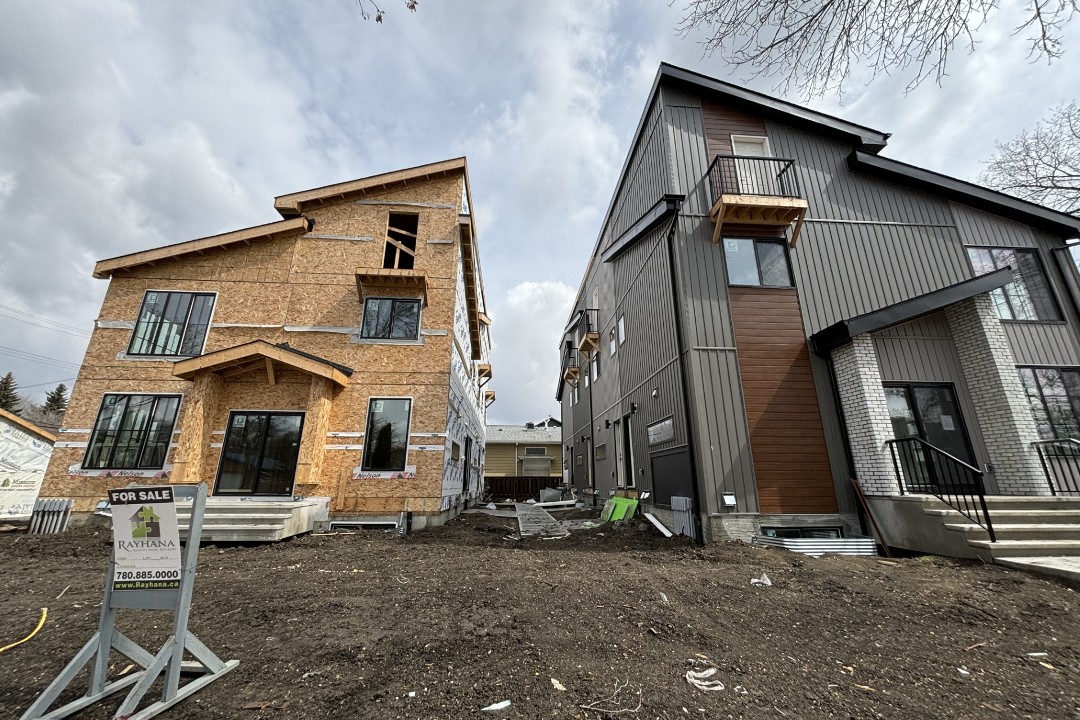While Bill 20 has drawn heat for changes to local governance and elections in Alberta, it also contains measures that will for the first time allow municipalities to offer property-tax breaks or deferments for up to 15 years on all residential properties.
If the bill passes (which seems likely given the United Conservative Party's majority), municipalities will have the power to issue the kind of tax incentives on residential properties that they already can on non-residential properties, a measure intended to accelerate new and attainable housing, said Michael Francoeur, a spokesperson for the Ministry of Municipal Affairs.
"Multi-year residential tax incentives will only apply to municipal property taxes and can be tailored to suit the needs and goals of each municipality," Francoeur told Taproot in an email.
Industry advocates say the change could spark the development of new housing, make previously unviable housing types buildable, and push some stalled projects into gear.
"The impact of the policy spans from small to massive, contingent on the municipality's utilization (of it)," said Scott Fash, CEO of the BILD Alberta Association, in an email. "In urban hubs, it could catalyze transit-oriented housing and downtown revitalization, fostering construction of previously unviable units like three- and four-bedroom rentals."
Fash added that builder shortages are prevalent in smaller municipalities, and that potential tax breaks may be a "pivotal factor" for whether a project becomes feasible to build in these locations, as it could allow cutting the expense of paying property taxes over a three- to five-year construction period.
Exemptions and deferrals from paying property taxes are nothing new for municipalities, including the City of Edmonton. Under the current Municipal Government Act, property-tax exemptions are possible for schools, hospitals, nursing homes, religious properties, cemeteries, and in some cases seniors housing, provincially owned affordable housing, properties owned by the city, and properties owned or held by non-profits.
The proposed changes would not restrict municipalities on the types of residential properties (such as edge-of-city developments, often referred to as greenfield) or types of housing development that can be exempted or deferred, Francoeur said.
"This tool is flexible such that municipalities can choose to use it in any way they see fit to address the quantity and type of housing they are seeking to incent."

A multifamily development in Edmonton's Bonnie Doon neighbourhood. Once passed, Bill 20 will allow municipalities to exempt residential properties from property taxes or defer them, a change that one industry insider says could be "massive" in spurring new housing to be built. (Tim Querengesser)
The City of Edmonton has contemplated such powers for many years. In 2021, council's executive committee requested a report from administrators analyzing the effect of having the power to exempt some or all forms of affordable housing from property tax. The resulting report, delivered in 2022, suggested affordable housing providers routinely approach the city asking for just this exemption, including in recent years the Metis Nation of Alberta, HomeEd, and Right At Home Housing.
At the time, the city noted it was unable to offer these affordable housing organizations a tax exemption or deferral, and instead contemplated creating a grant program as an incentive.
The report also noted the potential difficulty increased tax exemptions can create. Simply put, if cities exempt some residential properties from paying taxes, the others see their taxes increase. "This means that exempting this property type would have the same financial impact as approving a tax increase for the remaining tax base, including on housing options that are currently attainable for lower income residents," the city report reads.
While Alberta Municipalities has been sharply critical of Bill 20's effects on local democracy, the organization supports multi-year residential property tax incentives, with qualifications. "If municipalities choose to offer incentives, these incentives should also apply to provincial property tax," it said in its preliminary analysis.
Francoeur said a municipality will need to create a bylaw to set the eligibility criteria for applicants, the process to apply, and the details on whether there is a full exemption or a deferral to be repaid at a later date.
The current municipal powers to exempt or defer taxes on non-residential properties have been in place since 2019, passed by the UCP government when Jason Kenney was premier. That change was meant to spur economic development and attract investment.
Fash said property taxes are one of several limiting factors for residential developers and an ongoing challenge for rental projects. "Upfront construction costs, levies, approval timelines and project financing would all be more significant cost considerations, but taxes still play a role," he said. "The recent GST rebate for purpose-built rental and CMHC's rental financing program are big reasons we are seeing significant increases in rental construction. A tax exemption would not be at that scale, but would certainly help and could be an effective tool to encourage different types of unit composition."
He added that he expects significant interest from developers to seek tax exemptions or deferrals to expedite housing construction if Bill 20 passes. "The effectiveness of this approach lies in its potential to facilitate additional rental construction, particularly for family-oriented units, and to spur development near transit hubs or downtown areas, aligning with urban growth objectives."
